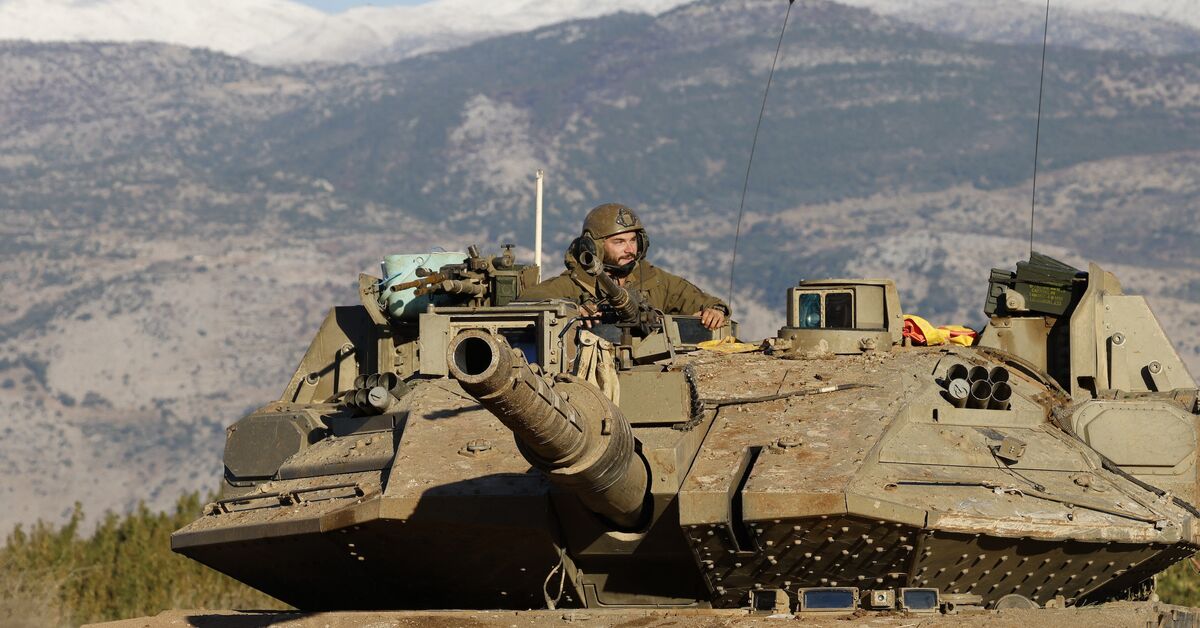WASHINGTON —The governments of Israel and Lebanon have accepted a ceasefire to end more than a year of fighting between Israel and the Lebanese militant group Hezbollah, President Joe Biden announced on Tuesday.
“This is designed to be a permanent cessation of hostilities,” Biden told reporters from the Rose Garden.
The ceasefire will come into effect at 4am local time on Wednesday, Biden said. It provides a rare foreign policy win for the outgoing US president, whose aides have spent months seeking an agreement from Israel and Lebanon on a deal to halt the hostilities that escalated into an all-out war in September. Hezbollah was not a formal party to the agreement but gave its unofficial approval via intermediaries.
Ahead of the expected deal, Israel worked to inflict maximum damage on Iran-backed Hezbollah with a wave of strikes on the group’s southern Beirut stronghold. Israeli warplanes also targeted buildings in the city center on Tuesday, killing at least three people in the capital’s Nuwairi area, according to Lebanon’s Health Ministry.
The agreement announced Tuesday is based on UN Security Council Resolution 1701, which ended the monthlong war between Israel and Hezbollah in 2006 but was never fully implemented. The ceasefire calls for the Israeli army to gradually withdraw from Lebanese territory and for Hezbollah to disarm south of the Litani River during an initial 60-day implementation period.
Thousands of soldiers in the Lebanese army will deploy to the country’s south, alongside an existing UN peacekeeping force, to ensure Hezbollah does not rearm itself in the area between Israel’s border and the Litani River. The United States will head an international oversight body tasked with monitoring the ceasefire’s implementation.
Israeli Prime Minister Benjamin Netanyahu announced in a pre-recorded statement Tuesday that he had agreed to a ceasefire, and he urged his cabinet ministers to accept it.
“It is not the same Hezbollah. We have pushed them decades back,” Netanyahu said.
US negotiators led by White House envoy Amos Hochstein had made significant progress in recent weeks, hoping to secure a ceasefire deal before President-elect Donald Trump takes office in January.
A sticking point in the talks had been Israel’s wanting the freedom to respond with military action in Lebanon should Hezbollah violate the deal, a demand the Lebanese government and the Shiite group viewed as a violation of the country’s sovereignty.
Netanyahu said Tuesday that Israel would “respond forcefully to any violation” by Hezbollah.
“In full coordination with the United States, we retain complete military freedom of action,” Netanyahu said. “Should Hezbollah violate the agreement or attempt to rearm, we will strike decisively.”
Hezbollah began firing rockets, drones and missiles into Israel a day after Hamas carried out its deadly Oct. 7 attack. The low-level conflict on the Israeli-Lebanese border escalated in September when pagers and walkie-talkies used by hundreds of Hezbollah members exploded in attacks attributed to Israel. The Israeli military killed the group’s longtime leader, Hassan Nasrallah, in an airstrike before launching a ground invasion into southern Lebanon.
The nearly 14-month conflict has killed more than 3,700 people in Lebanon and over 120 people in Israel, according to authorities in both countries. More than 1.2 million people in Lebanon and over 46,500 people in Israel have been displaced from their homes amid the cross-border fire.
The ceasefire does not address Israel’s ongoing war against Hamas in the Gaza Strip, where the local health ministry’s death toll has surpassed 44,200. Speaking to reporters on Tuesday, Secretary of State Antony Blinken voiced optimism that a ceasefire between Israel and Hezbollah could help end the conflict in the Palestinian territory.
“Hamas has sought from day one to get others in on the fight,” Blinken said. “If it sees that the cavalry is not on the way, that may incentivize it to do what it needs to do to end this conflict.”
This is a developing story and will be updated.

